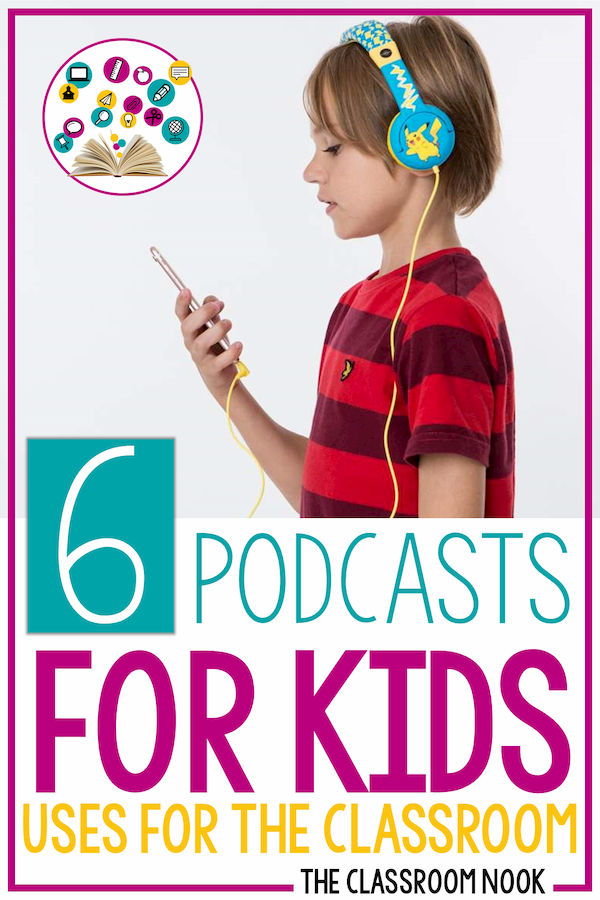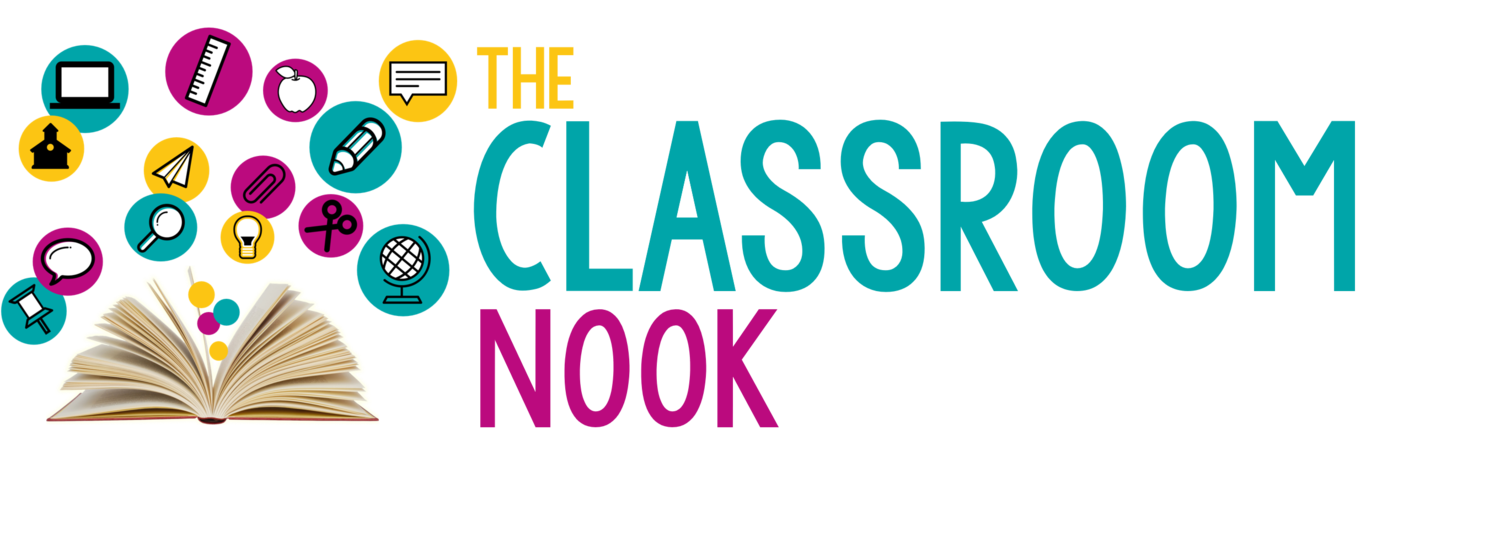Podcasts for Kids: Uses For the Elementary Classroom
Love podcasts? Check out this episode all about using podcasts in the classroom with your students on the Classroom Commute Podcast

Looking for a different way to deliver educational content and keep your students engaged? You may want to give podcasts a try! Podcasts are flexible – they’re easy to fit in as a transition activity or as part of regular listening center units. Many kids find podcasts more appealing and easier to absorb than reading or videos.
An Introduction to Podcasts
Podcasting is a service that allows Internet users to pull audio files from a podcasting Web site to listen to on their computer or other device. The term “podcasting” is simply a combination of the words iPod and broadcasting.
A Podcast is similar to talk radio, but individual episodes can be accessed on demand, instead of on a dictated schedule. It’s a series of spoken, audio episodes, often focused on a particular topic or theme. You can subscribe to various podcasts using an app on your classroom devices. You can then allow students to listen to episodes whenever you like, using headphones or speakers.
How to Use Podcasts in the Classroom
Podcasts can easily fit into your existing teaching schedule. As a way of easing in, try them as an occasional alternative to read-aloud. Pass out or project a transcript of a short podcast (podcast website often provide transcripts), so that your students can read along with the audio. Podcasts allow students to practice their listening comprehension of texts, and the corresponding transcripts enable students to confirm their success.
They are also a great addition to your listening center during readers workshop. Have students listen to a podcast on an iPad or other digital device.
YOU MAY ALSO LIKE: WAYS TO USE AUDIO BOOKS TO SUPPORT YOUR READERS
Try podcasts as a method of introducing new units. For instance, one teacher used the prologue from an episode of the podcast This American Life called The Invention of Money to introduce a unit on money. The class read the transcript while listening. Along with other supporting content, such as a Brain Pop video, the exercise proved to be very successful.
A short transitional activity is often useful in getting kids back on track after lunch, recess or specials. Podcasts have been shown to be effective for this purpose, as they help students to slow down. Good podcasts tend to be centered and “down-to-earth” encouraging kids to listen, reflect and digest what's being said.
Great Podcasts for Young Students
The good news for teachers is that more and more high-quality podcasts are being produced specifically with young learners in mind. Let’s take a look at six recommended podcasts that you and your students can get started with right away!
Tumble is a kid-friendly science podcast, that’s also enjoyable for teachers. Its focus is stories about science discoveries, told with the help of scientists. Hosts Lindsay and Marshall explore topics such as “Why Do Seals Have Whiskers?” and “Is There an Edge To the Universe?”
From Tumble’s manifesto: “While we hope to inspire curiosity and discovery through accessible storytelling, our show isn't about preparing kids to be scientists or engineers. We hope to prepare kids to be smart participants in society, who understand that science is one of the most powerful tools we have to shape our future.” Click HERE to give Tumble a listen!
This classical music podcast uses six-minute episodes to introduce young listeners to different composers. Each month, the work of one composer or a single classical music topic is covered. The site also offers lesson plans, games, and other supplemental activities. You can listen HERE!
BRAINS ON!
Each week on the Brains On! Podcast, a different kid co-host joins Molly Bloom to find answers to fascinating questions about the world. The questions featured are submitted by the show’s young listeners. The Brains On! Mission: “…to encourage kids’ natural curiosity and wonder using science and history.” LISTEN HERE.
According to their website, Storynory is “storytelling as Homer used to do it: one person, telling a story with the special effects that used to be known as 'words'. You can almost hear the narrator settling into their armchair by the fire as they begin telling some of the best-known stories from history. Aladdin, Alice’s Adventures in Wonderland, Baba Yaga . . . they’re all here. If Aesop were to make a podcast, it would sound something like this.” Check it out HERE!
Each episode of this podcast starts with a child asking a question. For example: Why do people have different religions? Why the sea is salty? Do bumblebees have hearts? The questions are then answered by experts, who share their knowledge, expressed simply, so that kids can understand. Learn more HERE!
"This American Life" offers over 600 narrative-driven episodes that cover everything from the basics of campaign finance to modern-day pirates. Full episodes are long, but teachers often use just the prologue of an episode (less than 10 minutes) as the means to introduce a topic.
This American Life’s website includes Educator Resources, with lists of episodes that teachers have used as lessons on history, English, psychology, and more. You can search by subject and grade-level. Many teachers have left comments on how they've used the podcast in class—some even include lesson plans, study guides, and reading schedules. LISTEN HERE!
Grab a free Podcast response sheet:
free student podcast sheet
Looking to implement podcast listening in your classroom!
Be sure to download this simple response sheet to help students record their learning and thinking as they listen!
With podcasts, you can choose the content and form that fits your class and any particular lesson. Podcasts provide diverse topics to keep classes exciting. They are valuable for use as transitional activities and as introductions to regular subject matter.
All that, and they’re free! That’s a budget that any teacher can manage!
Speaking of Podcasts…
Did you know that I have a podcast for TEACHERS? Yup. It’s called The Classroom Commute and it’s the perfect podcast to listen to on your commute to and from school. With bite-sized episodes, we talk about all things teacher-related and you’ll walk away with actionable tips and teaching ideas to use right away in your classroom! Plus - it’s a lot of fun! Have a listen!








